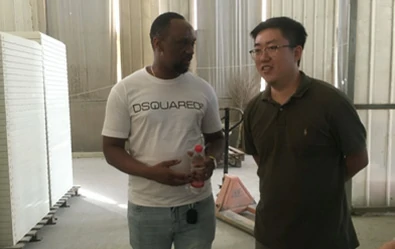loading...
- No. 9, Xingyuan South Street, Dongwaihuan Road, Zaoqiang County, Hengshui, Hebei, China
- admin@zjcomposites.com
- +86 15097380338
- Welcome to visit our website!
frp pressure vessel
Understanding FRP Pressure Vessels A Comprehensive Overview
Fiber Reinforced Plastic (FRP) pressure vessels have become increasingly popular in various industries, thanks to their unique combination of strength, durability, and lightweight properties. These vessels are designed to contain fluids or gases under pressure and are made from a composite material that includes a polymer matrix reinforced with fibers, such as glass, carbon, or aramid. This innovative construction allows FRP pressure vessels to withstand high pressures and resist corrosion, making them suitable for a wide range of applications.
Understanding FRP Pressure Vessels A Comprehensive Overview
Another significant benefit of FRP pressure vessels is their lightweight nature. The reduced weight not only facilitates easier installation and transportation but also minimizes structural support requirements. This characteristic is especially beneficial in projects where load-bearing capacity is a concern, allowing for more flexible design options and potential cost savings in construction.
frp pressure vessel

When it comes to manufacturing FRP pressure vessels, adhering to standards and regulations is crucial. Various organizations, including the American Society of Mechanical Engineers (ASME) and the American Bureau of Shipping (ABS), provide guidelines that ensure safety and performance. Manufacturers typically conduct rigorous testing and inspections to verify that their products meet these standards, including pressure testing and non-destructive testing methods.
It's also important to note that while FRP pressure vessels offer many advantages, there are limitations. Factors such as temperature sensitivity and potential issues with UV exposure must be considered during the design and application phases. Moreover, the initial investment for FRP can be higher than traditional materials. However, the long-term benefits often outweigh these initial costs when considering durability and maintenance savings.
In conclusion, FRP pressure vessels represent a significant advancement in pressure containment technology. Their resilience, lightweight properties, and ability to resist corrosion place them at the forefront of modern industrial applications. As industries continue to evolve and demands for efficient and reliable solutions grow, FRP pressure vessels are likely to play an increasingly important role in ensuring safety and efficiency in operations.
-
Why Choose a Galvanized Water Tank for Your Storage NeedsNewsMay.21,2025
-
The Strength and Durability of FRP GratingNewsMay.21,2025
-
The Importance of Water Treatment Systems for Clean and Safe WaterNewsMay.21,2025
-
The Advantages of FRP Rebar for Construction ProjectsNewsMay.21,2025
-
Say Goodbye to Hard Water with a Reliable Water SoftenerNewsMay.21,2025
-
Maximize Your Water Storage with a Sectional Water TankNewsMay.21,2025
-
The Power of Filter VesselsNewsMay.19,2025
